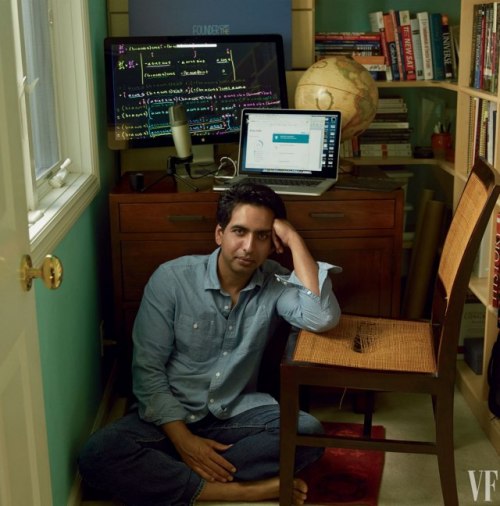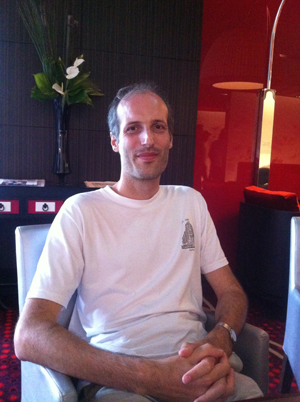My
Signals and Systems class is taking this online course:
Survey of Music Technology.
Why?
Music is big in Nigeria nowadays, and is a big hit with young people.
On the other hand, the "typical" first Signals course is too abstract, too mathy, for all but a few engineering students to embrace (I was one of those few back in undergrad, the famous Oppenheim textbook was fat but very exciting to me), so in teaching Signals, I usually want two new ingredients -
- some math review (don't ask, we usually have to review functions like f(x) = sin x)
- and some motivation (why are we computing these Fourier integrals? what are some applications?).
When I taught Signals last year the math review bit was via Khan academy and additional lectures on integration and complex numbers.
(The previous year, I was also teaching a math class to the same set so I squeezed some of those topics onto their math syllabus. The semester before that, the focus of the class was a little different, and while we could "talk" - history, ethics, tech, we couldn't do math successfully.)
while
the motivation bit included me sketching graphs of the modulation and demodulation used in radio communication - standard signals stuff, but few 20-year olds in 2014 are thinking that way, really.
Hard to appreciate radio frequency technology as technology unless you're like 50 years old, which is like ancient :)
While the business technology / technology business communities like to talk about the last mile in telecommunications and how mobile telephony brings the internet to all parts of Africa, i.e. but for the cellphone, most people would not have access to the internet in Africa at all...the all-important internet penetration riding on the back of high mobile penetration...
My students in their test answers showed me a different worldview. They take the phone as a given, as the base. Then they write that but for the internet and mobile apps, the phone would be pretty dumb. The all-important mobile device depending on the internet and apps for utility and competitiveness. One can't but smile.
Anyway,
digital music programming was a hit the
last time I included it in a course at the same college, as a fun way to learn programming concepts. It was a terrible lot of work, yet they were all smiles.
I can already see that it - a slightly different sound technology course - will be a hit this semester. What's more, these waves and amplitudes and spectra will REALLY, DEEPLY make sense to, not a few students but practically all of the students who engage in the course.
 |
| Modified screenshot of lesson outline for WEEK ONE of MusicTech on Coursera, offered by Jason A Freeman of GeorgiaTech |
Other advantages of this
course within a course idea -
- it helps me atomize the large class (we'll still meet weekly, in two groups of fifty each, but you add their time spent individually and in smaller groups on other high-quality learning activities, and they're doing 5-10 hours of fun with signals. I can go home happy),
- it gets them to see the world (how do people communicate? oral and written English, effective slides, multimedia use, and so on. what are my colleagues like across the world? how do people conceive of learning? plagiarism and ethical standards, other large-group etiquette, the evolution of learning, scalable models...)
- in theory it's less work for me. yeah, right. more importantly, it brings in more expert experts than me and better-prepared presentations in some cases. they're being evaluated at least once weekly, with quizzes and projects, and I don't have to worry about that workload.
It's just really cool all around. There are many reasons why a good/great instructor is still important. I'm sure you know that, otherwise, guess that's another blog post.
(Basically I have to know the audience and research the possible teaching resources. The I have the pleasure of taking the online classes and discussing with students and adjusting, even aborting, as necessary. And so on. Fun stuff. Value-adding stuff.)
Advertisement: Read
my books.
My
other class this semester is very course-within-a-course as well.
I know I owe you a few long-missing blogposts. Soon. Minesweeper. Prime numbers. X-and-O. Maybe someday Sudoku.










